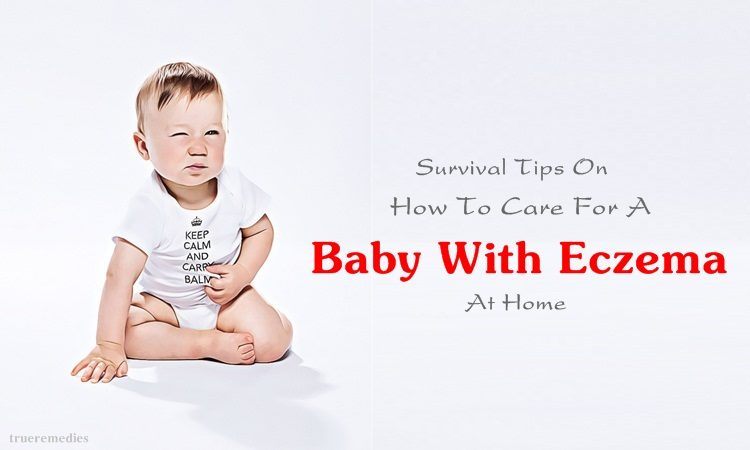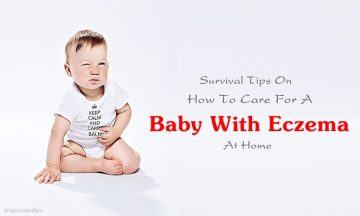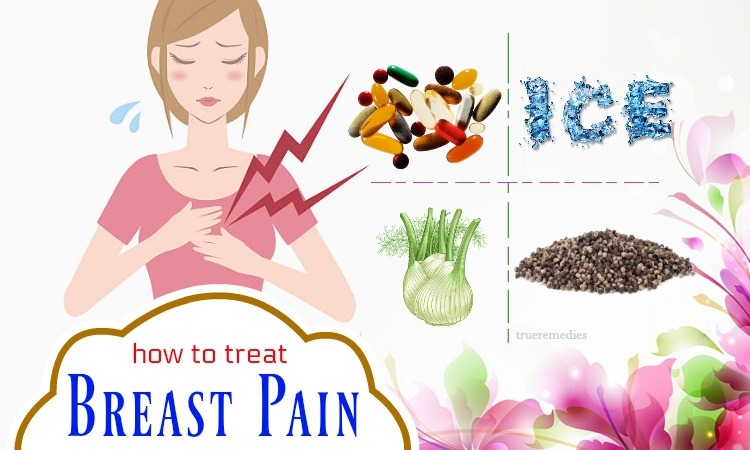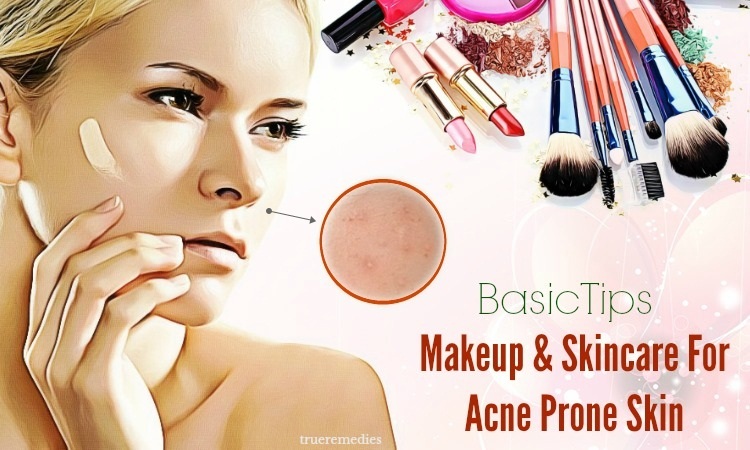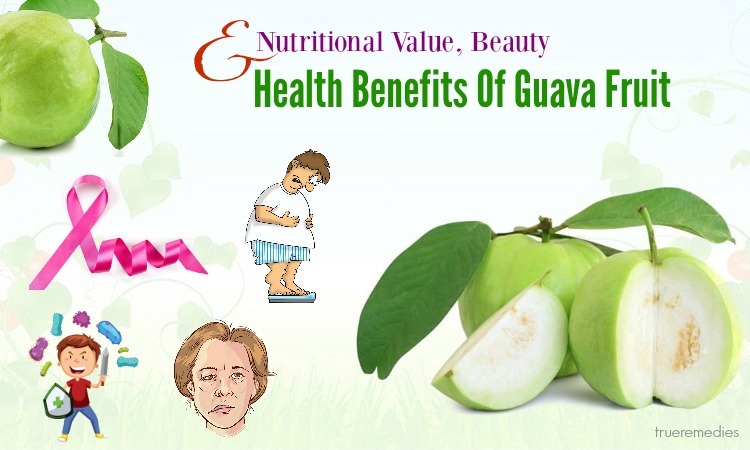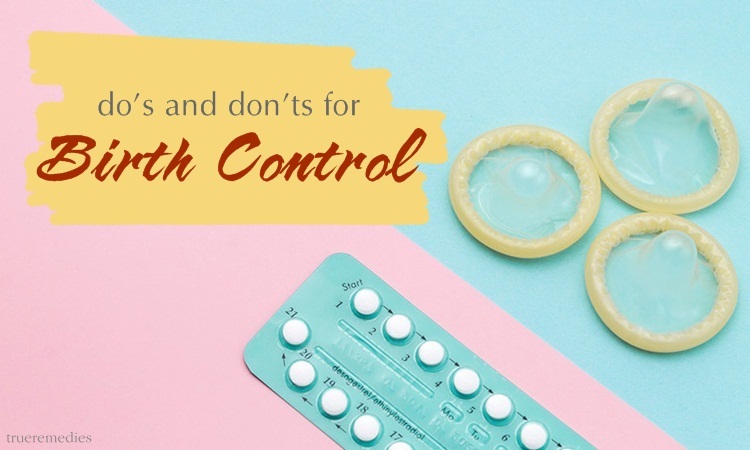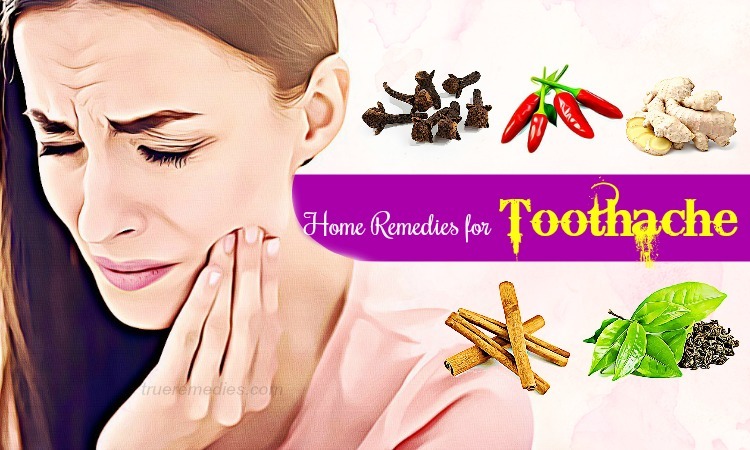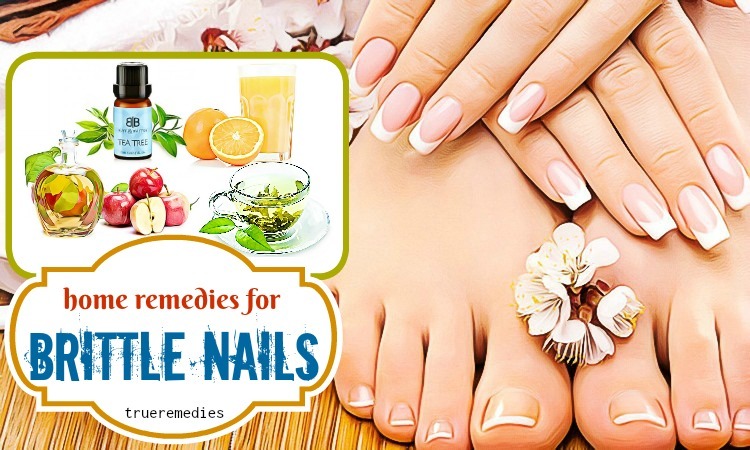Contents
The baby’s skin is more sensitive than adult’s one; therefore, they are likely to get several skin issues, including eczema. Eczema is a common skin problem in babies and children. Treatment can take a toll on your family, especially when you live in a nuclear family.
Suffering from eczema, babies will get the red, irritated and cracked skin which makes them uncomfortable and painful. Seeing your baby cry too much puts the pressure on parent’s shoulders and keeps them worried.
Fortunately, it isn’t a life-threatening or contagious disease; so you can do several things to reduce its symptoms and make your child better. Based on our experience and knowledge, we can help you know the basic information about eczema and then come up with survival tips on how to care for a baby with eczema at home.
- 23 Natural Home Remedies For Dermatitis Symptom Relief
- 22 Home Remedies For Dry Skin On Face & Body
- 21 Home Remedies For Skin Fungus On Hands, Thighs & Legs (This article was medically reviewed/ fact checked by Millie Lytle ND, MPH)
Top 7 Survival Tips On How To Care For A Baby With Eczema At Home
Eczema In Newborns And Babies
According to pediatricians, about 5-20% of infants and newborns are diagnosed with eczema[1]. This condition starts early at a young age as 65% of patients develop eczema symptoms in their first years of life, while 90% have visible signs before 5 years old.
Many people confuse eczema with seborrheic dermatitis[2], but there are differences between them. For example, patients with seborrheic dermatitis have less red skin with scaly patches on the surface of the scalp, sides of noses, eyelids, eyebrows and behind the ears. Furthermore, the skin of children suffering from seborrheic dermatitis often has a sour smell. But this condition will go away after children reach 8 months old.
On the other hand, eczema appears in babies at the age of 2 to 4 months old, and it is often divided into two types:
TrueRemedies Partner Solutions

Need a Help from the Leading Expert Online, Available 24/7?
They’re all here and ready to answer your questions online or by phone. Keep asking questions until you get the answer you need.
- Atopic dermatitis: It is a typical chronic genetic condition that is commonly seen in babies with a family history of asthma, or eczema, or allergies.
- Contact dermatitis: This condition is shown with red and itchy rashes on the skin caused by direct contact with an allergic reaction or a substance such as cosmetics, soaps, jewellery, fragrances, and plants. The contact dermatitis in babies will disappear when the causative factors are removed.
Symptoms Of Eczema In Babies And Infants
You can know whether your baby is suffering from eczema or not by looking at the red, flaky patches on the skin in noticeable areas, such as cheeks, behind the ears or on the scalp[3].
If not addressed and treated soon, the affected spots can spread down to the baby’s elbow, knees and even in the diaper area. Moreover, some babies with eczema have itchy and dry skin. Therefore, babies often rub their affected cheeks, shoulders, or arms on the pillow while older children often scratch their itchy areas to find relief.
Eczema symptoms vary from baby to baby. But the common sign is that the flaky skin will become redder and redder while the blisters filled with fluid may pop. As a result, it may increase the risk of infection and cause further health problems. Scratching only makes the issues get worse, such as darker and thicker skin patches and ugly scars.
However, if you can still doubt about the signs and symptoms of eczema, the best solution is to let your baby meet a pediatrician who can diagnose the issue. Also, you should take your baby to a dermatological clinic where you can get the proper care instruction and treatment.
What Causes Eczema In Babies?
The exact causes of eczema are unknown, but genes may be the possible factor[4] [5]. A family history of eczema or asthma may put babies and infants at the risk of developing it.
Furthermore, allergic conditions like asthma, eczema, and hay fever are commonly seen in the urban environment because here you are easily exposed to chemicals and substances that trigger eczema[6]. And it increases the risk when your babies or children have an open wound or damaged skin that creates the easy way for viruses and bacteria to seep into their body.
Another cause of eczema could be the lack of fat cells known ceramide in their body, making skin dry and hydrated.
So, babies can have eczema due to different causes, but here are its common triggers.
- Low humidity in winter or dry air
- Soaps, bath, skincare products, laundry detergents, woollen or synthetic fabrics or clothes with certain dyes
- Stress
- The hot or cold environment
- Environment allergens like pollen, pets and household dust
- Food allergens like egg, milk, soya, wheat, and peanuts
How Is Eczema In Babies Solved
Eczema is difficult to treat completely, and it can last for years. Most babies get better after puberty, while others may suffer from this issue for their whole life. Some children may not have any noticeable signs and symptoms, but their skin can be dehydrated.
To relieve eczema in babies and infants, you can apply these available parenting tips on how to care for a baby with eczema here:
1. Emollients
Emollients are moisturizers, including lotions, creams, and ointments that are excellent in treating eczema[7].
It is recommended applying a lot of emollients to baby’s skin daily even when you do not see any eczema symptoms. Therefore, keep the emollient near where you place your baby’s nappy so that you can apply it if needed.
It is an excellent idea to let baby use emollient after a bath when their skin is still damp. That can help prevent dry skin and reduce the risk of eczema flare-ups.
Because there is a wide variety of emollients and moisturizers today in the market; you should try various products to find the correct one for your baby. Don’t forget to consult your GP for a proper prescription. He also checks whether your baby is still okay with this treatment.
Avoid using aqueous cream. Although it is a type of emollient, it causes skin irritation and makes baby’s eczema worse.
2. Corticosteroid Cream
Applying a corticosteroid cream is a natural remedy you can think of trying to reduce the symptoms and make your baby feel better[8] [9].
There are many kinds of corticosteroid cream available, and you need to consult your GP to pick the correct one for your baby’s symptoms. He will tell you exactly when and how to apply this solution to treat the flare-ups.
Severe eczema flare-ups can be solved by using corticosteroid twice a week; however, this treatment should only be taken with GP’s recommendation.
Potent corticosteroid cream needs to be taken with care because using it for a long time can lead to side-effects like lighter in color or making the skin thinner. Most side-effects will disappear after you stop the treatment. However, for safety, the doctor always suggests the weakest effective cream and recommends the strong one when it is essential.
3. Wet Wraps And Bandages
Wet wraps or special bandages are useful to keep lotions and creams on baby’s skin while making the skin moist. It also prevents your baby from scratching his itchy patches.
You doctor will choose the wrap or bandage that helps your baby. He also tells you how to use them effectively.
4. Antihistamines
Antihistamines aren’t a recommended treatment for eczema[10]. However, a short course of antihistamine liquid medicine will be helpful to reduce the itching and give your baby sleep at night if the symptoms of eczema keep your baby awake continuously.
However, my needed advice is to consult your GP before giving your baby any antihistamines.
5. Give Your Baby A Warm Bath With A Mild Shampoo For Baby
Taking a bath with warm water will hydrate and cool skin. It also helps to reduce the itchiness and irritation caused by eczema flare-ups[11] [12]. Therefore, make sure that the water in a bath isn’t too hot by using a thermometer or dipping your elbow in the water.
Furthermore, when you bathe your baby, avoid harsh soaps or shampoos that can cause flare-ups and worsen the symptoms of eczema. Instead, try using the mild shampoo made specifically for baby.
Also, you should never bathe your baby for more than 10 minutes. To relieve the itchiness, you can add some oatmeal into the bath for your baby.
6. Dry Your Baby’s Skin
After bathing your baby, you should dry his skin with a soft towel. Avoid rubbing because it can cause skin damage and worsen the eczema symptoms.
7. Dress Your Baby Comfortably
It is recommended choosing the loose clothes made of cotton to prevent the fabric from rubbing on the affected skin because it makes eczema more difficult to deal with[13].
Also, when it comes to washing clothes, using baby soap or baby detergent is a must. Also, to make your baby feel more comfortable, you should avoid wrapping him with too many clothes or covering him with a thick blanket..
What To Do If Your Baby Gets Itchy Because Of Eczema
Eczema causes itchiness, and scratching only makes it worse[14]. Therefore, do not let your baby scratch the patches, red skin, or blister on their body by keeping their nails short[15] and giving them a pair of gloves.
When you use any treatments or home remedies for relief, it is super important to read the instructions, consult the pediatricians before applying. Furthermore, follow the prescription of your GP because overusing these creams or lotions or use these for a long time will cause side effects such as making baby’s skin thinner.
Finally, if your baby doesn’t get better even though you have done all the solutions for a week, you need to take him to the pediatrician immediately. A meeting with an experienced doctor is also required if the yellow or light brown patches or fluid-filled blisters appear on the baby’s affected skin. That would be a warning sign of the bacterial infection that requires antibiotic treatment.
Also, keep your baby away from patients with genital herpes or cold sore because eczema will make your baby more vulnerable to those diseases.
Now you have known the needed parenting survival tips on how to care for a baby with eczema at home, find the best one and try. Although some natural methods can not treat the condition completely, they sometimes can help to control the symptoms. We hope that this article is helpful and informative for you. Any questions can be left in the comment section, and we will answer them as soon as we can.

